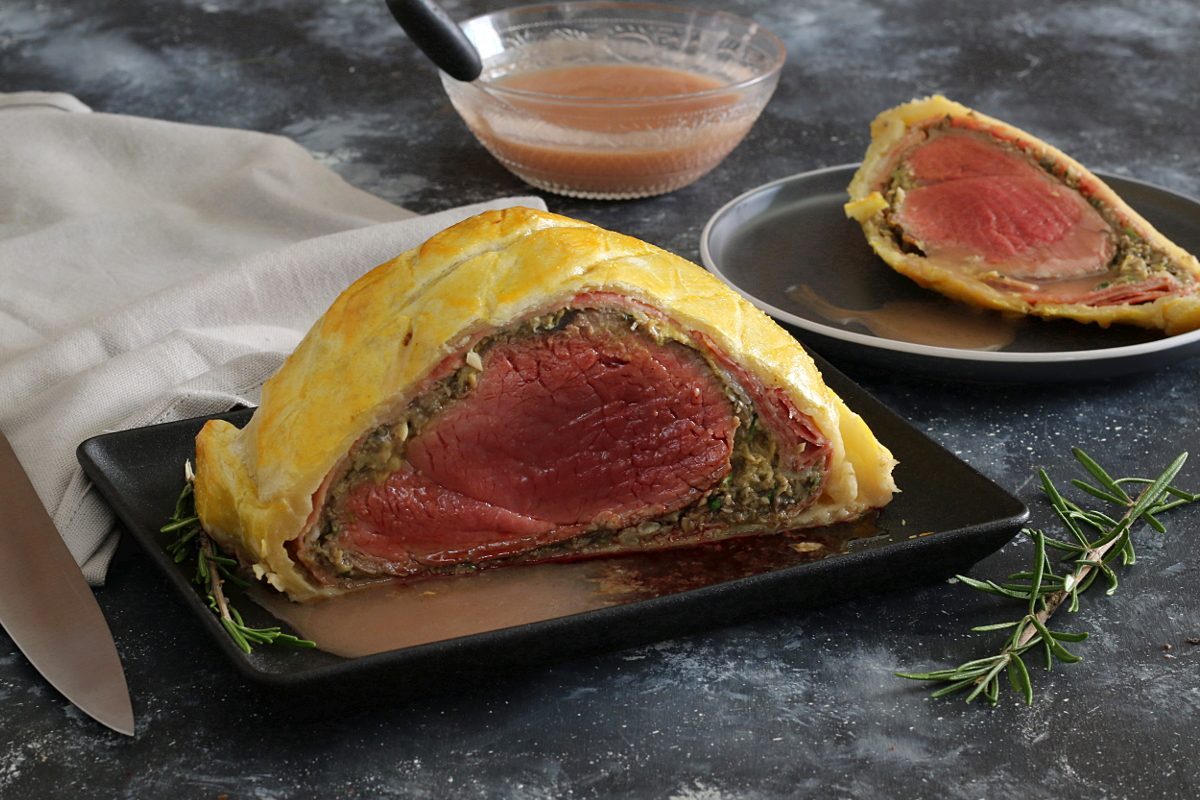;)
Ingredients
Beef Wellington is a rich, impressive main course of English origin, perfect for holidays and special occasions. Beef wellington consists of a tenderloin fillet coated with mushroom and ham, wrapped in buttery puff pastry and finally baked.
It is a complex and elaborate recipe that requires time and patience, but at the same time, it will guarantee you a good-looking presentation and a tender and succulent result. The secret of its success lies precisely in the choice of this cut. Choose beef tenderloin as it is fine, soft and lean.
Another key element is the double cooking of the meat. It is first browned in a pan, then covered with mustard, a mushroom sauce and raw ham, then wrapped in a casket of puff pastry. The result will be fragrant on the outside and pink at the heart.
This beef Wellington is served with a red wine sauce, for a pleasantly aromatic finish. Enjoy this traditional recipe during a special occasion or holiday dinner.
What is Beef Wellington?
Of ancient English origin, the beef Wellington is a famous recipe all over the world thanks to the British chef Gordon Ramsay. The name is a tribute to Arthur Wellesley, who became Duke of Wellington in 1815. According to history, it seems that the duke was a man of difficult tastes in the kitchen, until he tried this delicious crusted filet which soon became his favorite dish.
What is the best beef cut for Beef Wellington?
Beef tenderloin fillet is the best cut for making this classic Wellington recipe. It is super tender and has a delicious lean, juicy flavor that melts in your mouth.
The filet is usually divided into three parts: head, heart and tail. The head and tail are the parts used for cooking in the pan, while for this preparation it is preferable to use the central part which, thanks to its compact size, allows for a more uniform and very soft cooking.
Another beef cut that can still work for this recipe is ribeye roast. It's tender as tenderloin fillet, even if it has more fat and takes longer to cook.
What to serve with Beef Wellington
You can serve beef Wellington with a side dish of vegetables like sautéed Brussels sprouts, or roasted potatoes.
Pair beef Wellington with red wine like Pinot Noir.
Tips for the Best Traditional Beef Wellington
To prevent the external crust from softening too much, do not prepare the filet too early; you can wrap it with mushrooms and raw ham, then put it in the refrigerator covered with cling film. Just before cooking, cover it with the puff pastry.
Instead of making your own puff pastry, you can use store-bough one.
To be sure that the internal cooking of the meat is perfect, you can use a special thermometer: at 122° F at the heart, the meat is rare, at 140° F it is pink, while at 158° F, it is well done. If you don't have a thermometer, you can prick the filet; if the liquid that comes out is red, the meat is rare; if pink, it is medium cooking, if colorless, it means that it is well done.
How to store Beef Wellington
To enjoy it in all its fragrance, we suggest you eat the beef Wellington at the moment, and in case there is something left, you can store it in the refrigerator, in a special airtight container, for 2-3 days.
How to make Beef Wellington
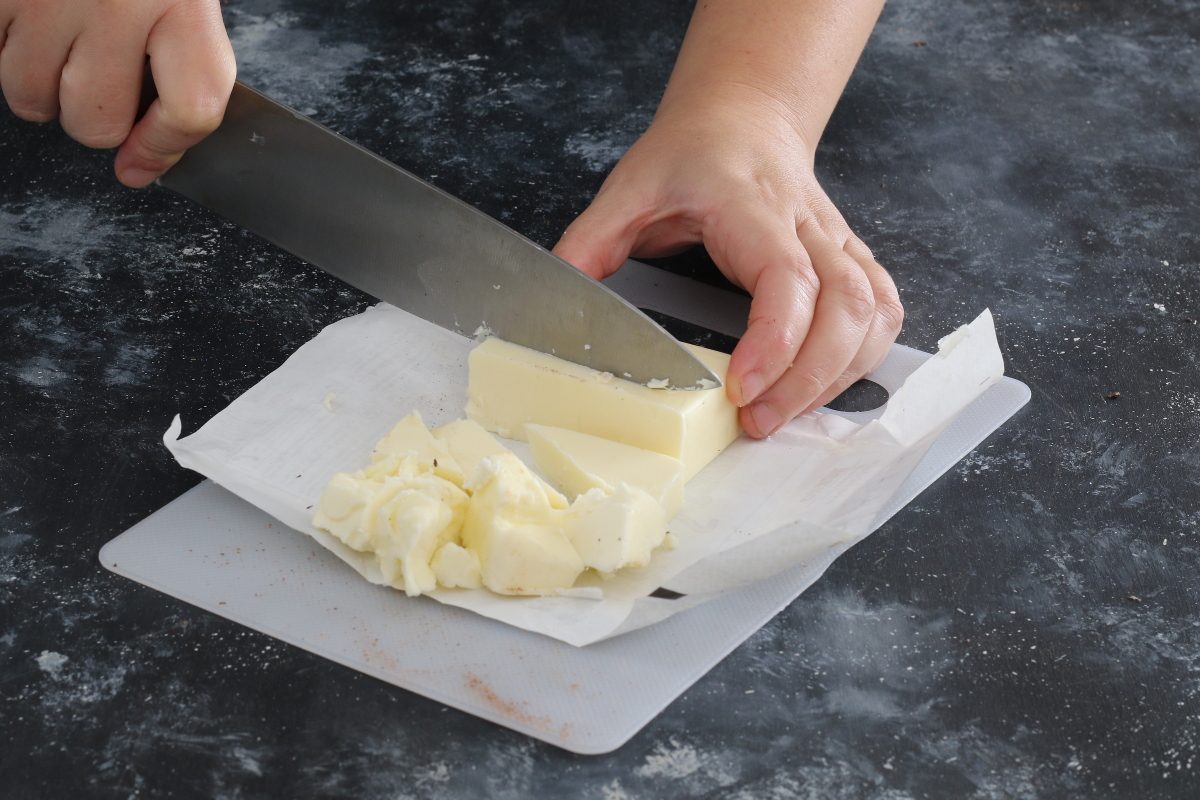;Resize,width=712;)
Cut the cold butter (taken from the refrigerator) and cut it into cubes 1.
Cut the cold butter (taken from the refrigerator) and cut it into cubes 1.
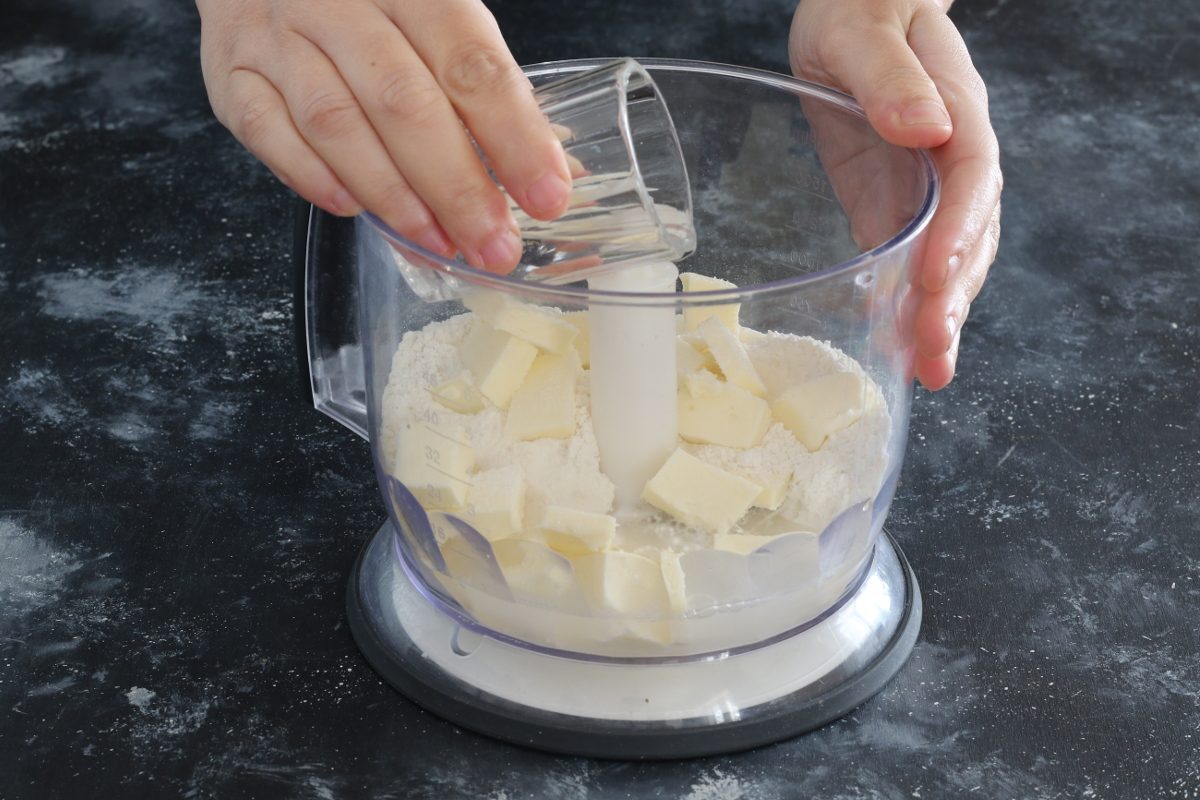;Resize,width=712;)
Put it in a stand mixer together with the flour, salt and water, which is also cold 2.
Put it in a stand mixer together with the flour, salt and water, which is also cold 2.
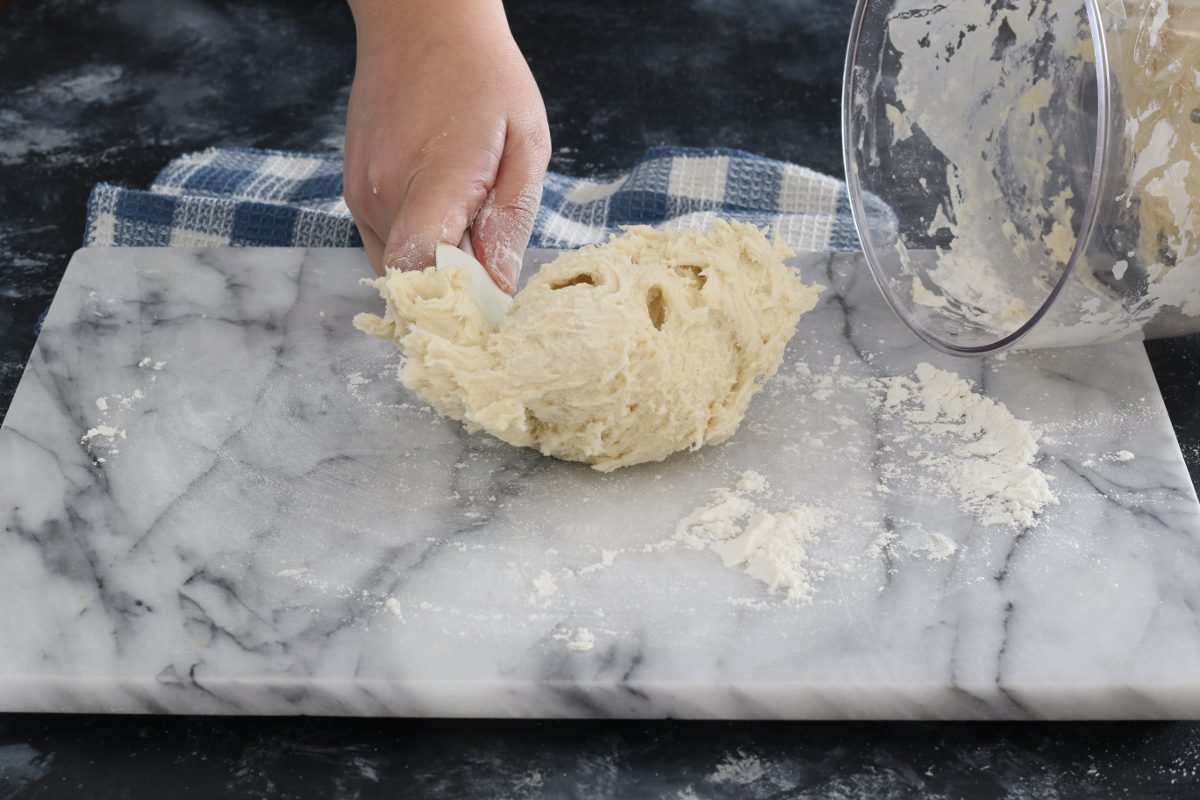;Resize,width=712;)
Blend the time necessary to mix the ingredients. Then transfer the mixture to a work surface and compact it 3.
Blend the time necessary to mix the ingredients. Then transfer the mixture to a work surface and compact it 3.
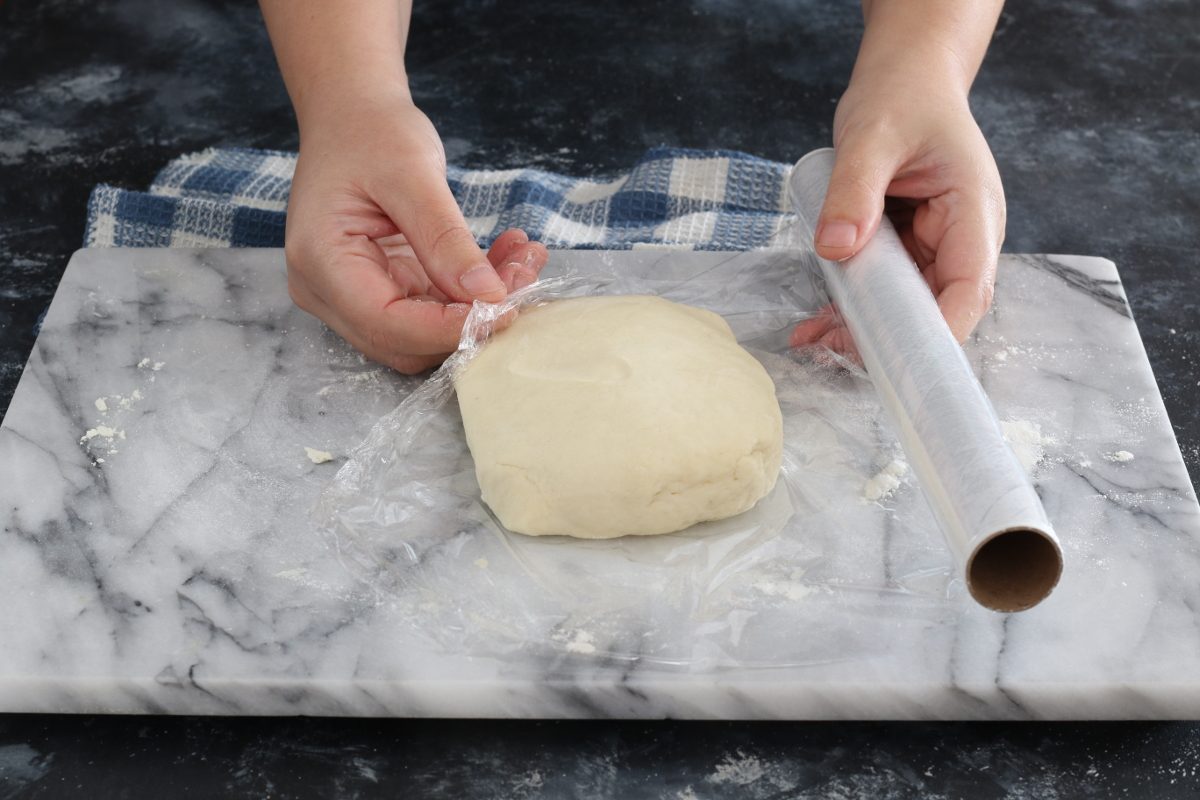;Resize,width=712;)
Form a loaf, wrap it with cling film 4 and place it in the refrigerator for at least 30 minutes.
Form a loaf, wrap it with cling film 4 and place it in the refrigerator for at least 30 minutes.
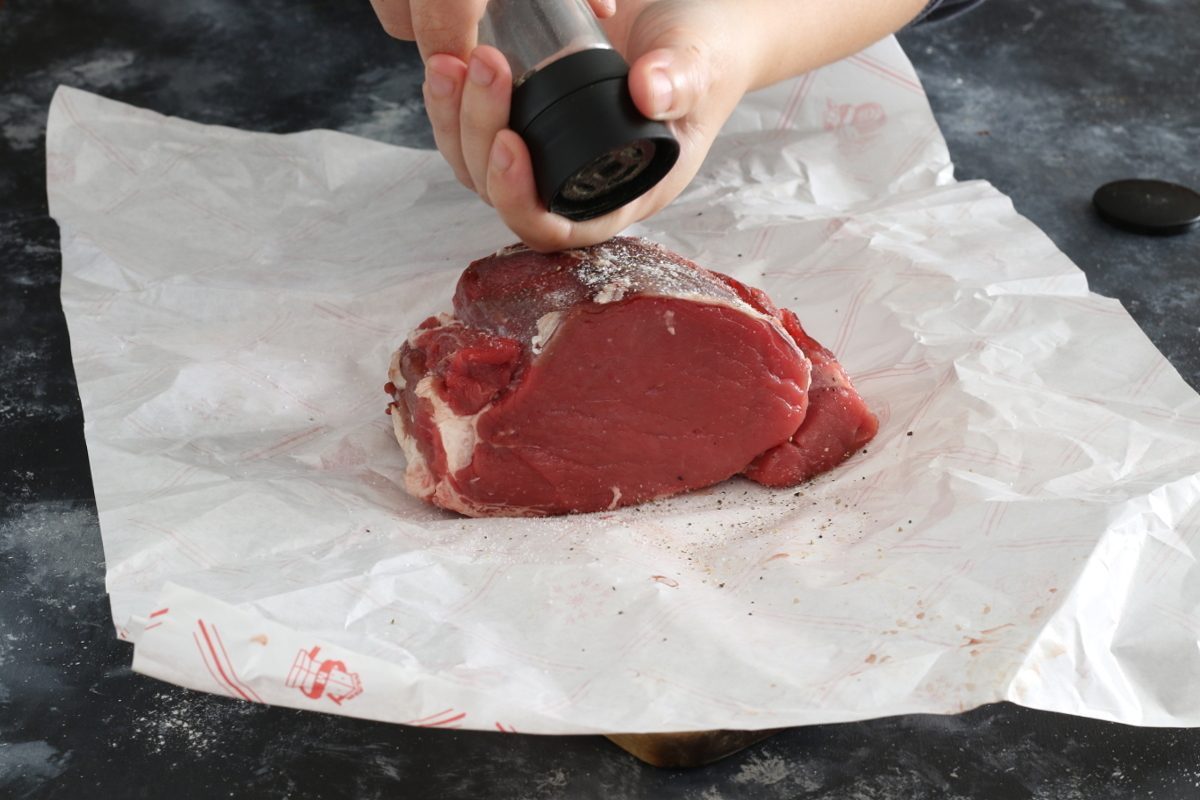;Resize,width=712;)
Take the whole piece of meat, then add salt and pepper to its surface 5.
Take the whole piece of meat, then add salt and pepper to its surface 5.
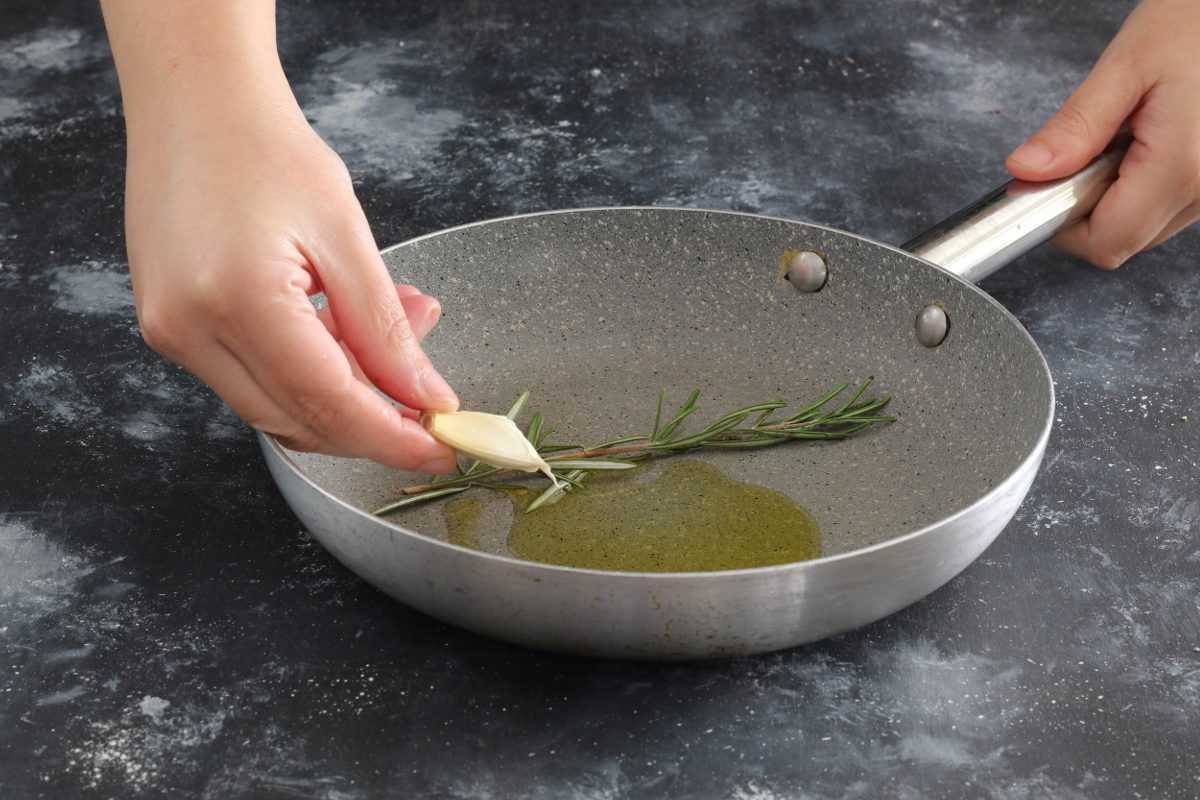;Resize,width=712;)
Pour a drizzle of extra virgin olive oil, a sprig of rosemary and a clove of unpeeled garlic into a pan 6. Put on the fire and let it heat up.
Pour a drizzle of extra virgin olive oil, a sprig of rosemary and a clove of unpeeled garlic into a pan 6. Put on the fire and let it heat up.
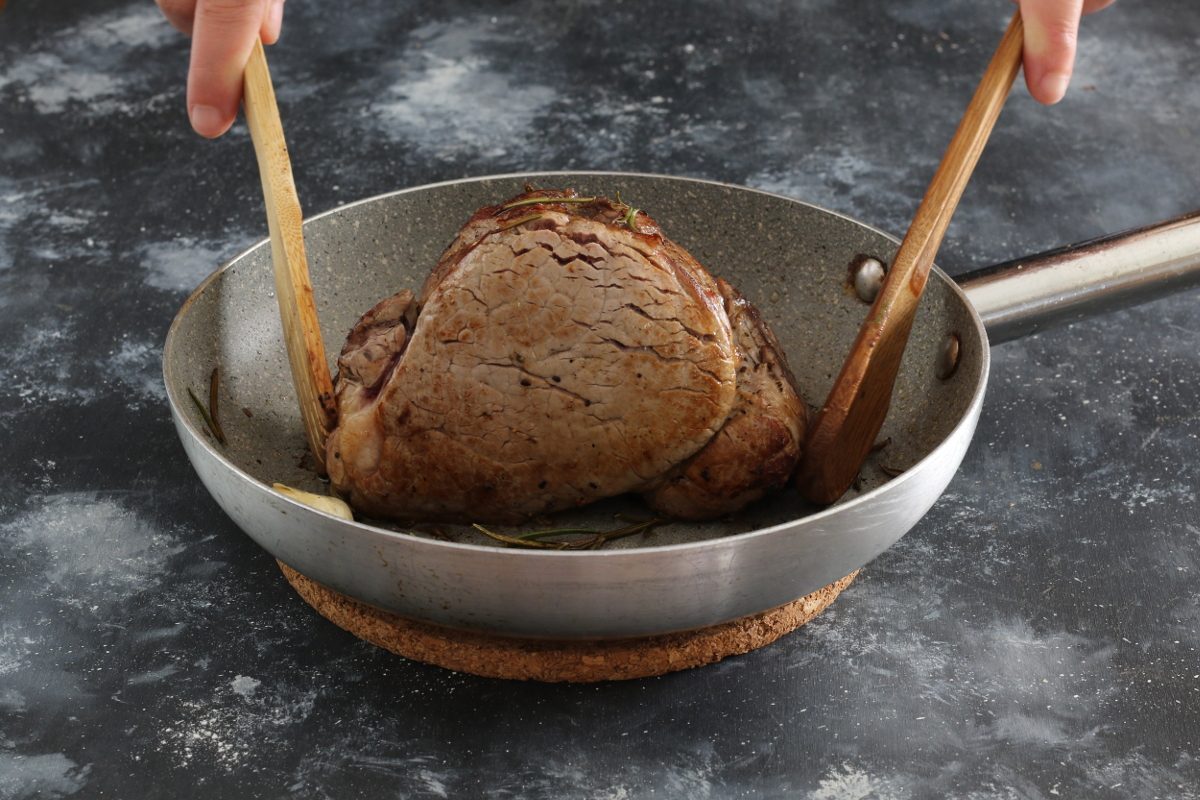;Resize,width=712;)
Arrange the filet and brown it on all sides 7. Be careful, it is in this phase that you will determine the cooking level of the meat.
Arrange the filet and brown it on all sides 7. Be careful, it is in this phase that you will determine the cooking level of the meat.
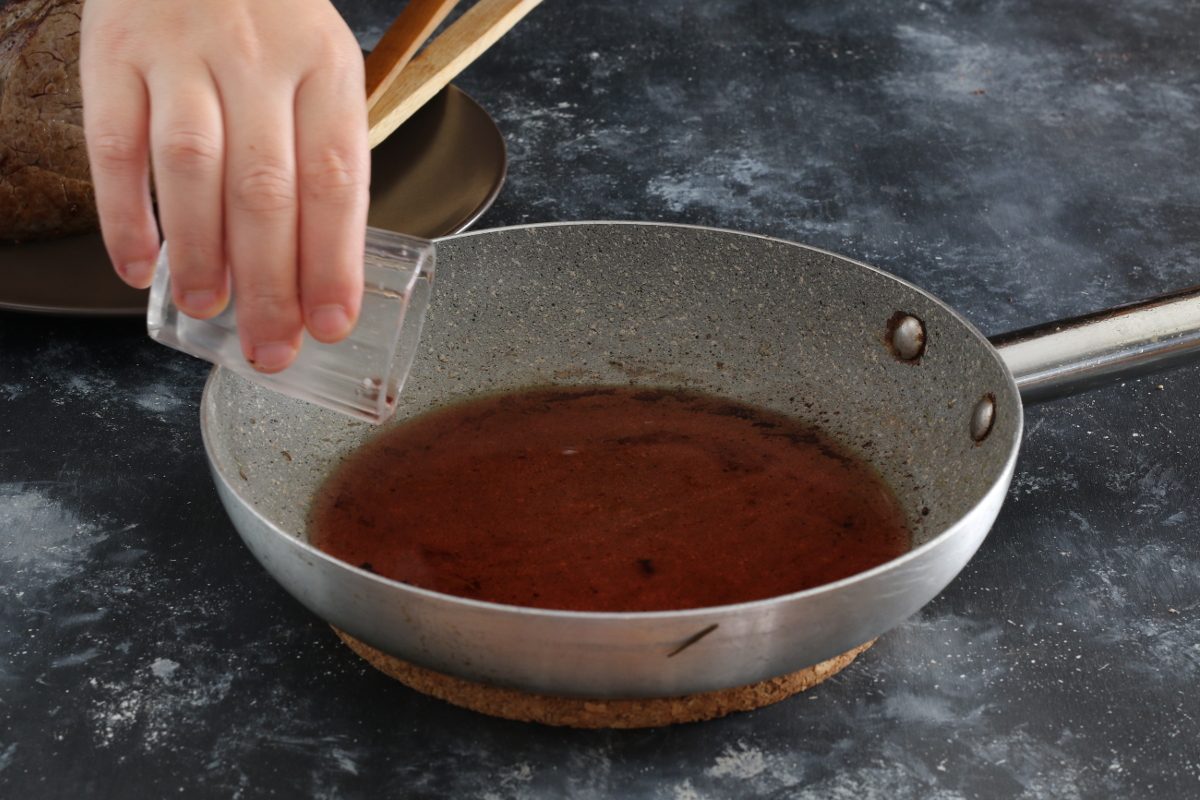;Resize,width=712;)
Remove the meat and let it rest so that the juices flow out. Meanwhile, remove the rosemary and garlic from the pan and deglaze the cooking juices; add ½ glass of water 8, salt, pepper and bring to a boil.
Remove the meat and let it rest so that the juices flow out. Meanwhile, remove the rosemary and garlic from the pan and deglaze the cooking juices; add ½ glass of water 8, salt, pepper and bring to a boil.
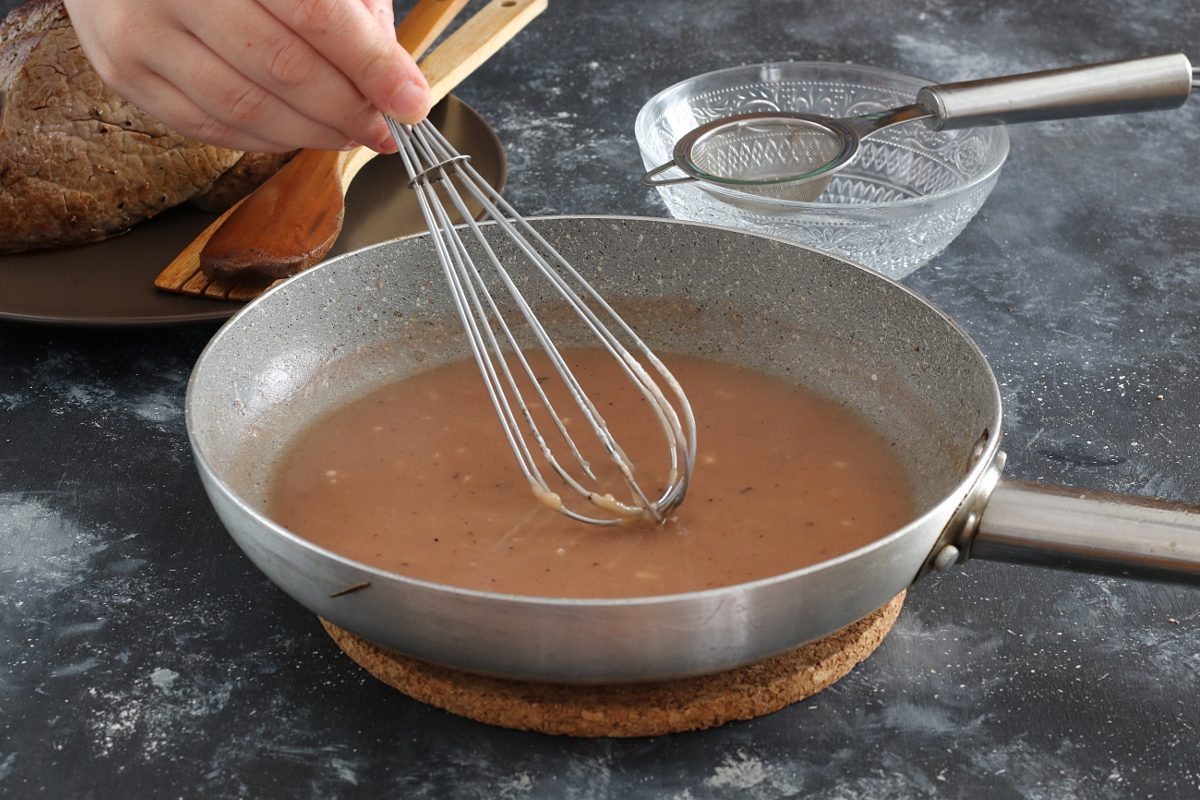;Resize,width=712;)
Add the starch and mix with a whisk until the mixture is quite compact 9.
Add the starch and mix with a whisk until the mixture is quite compact 9.
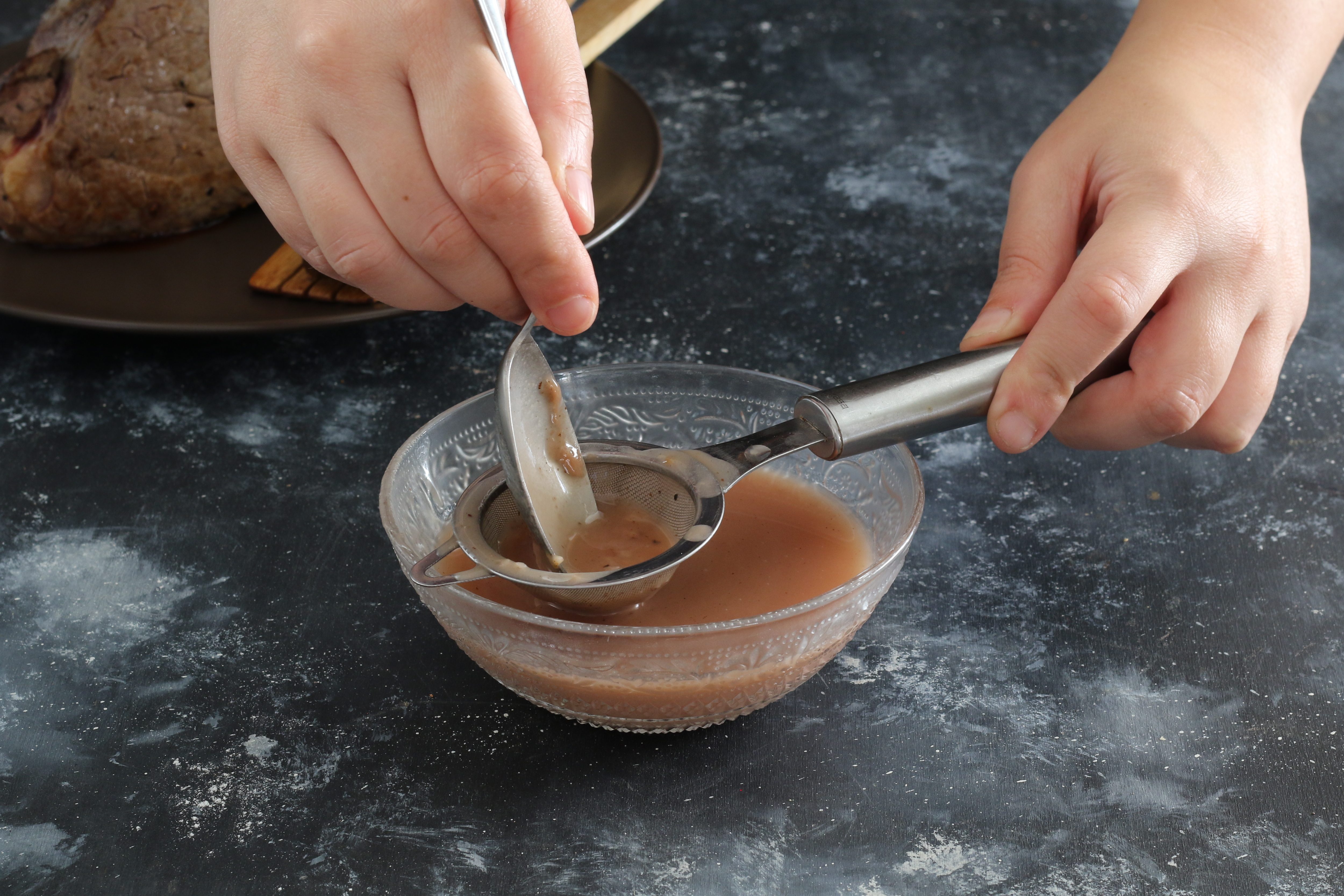;Resize,width=712;)
Filter the sauce through a sieve to remove any lumps 10. Keep aside.
Filter the sauce through a sieve to remove any lumps 10. Keep aside.
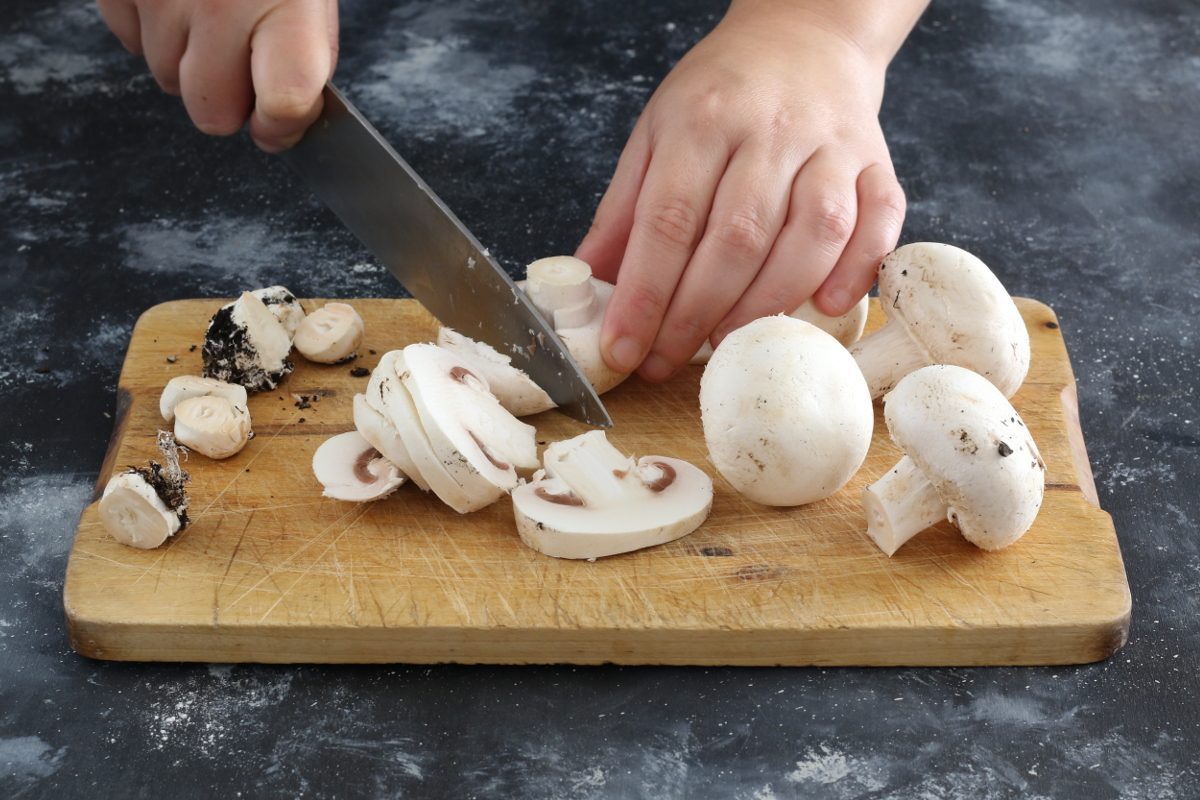;Resize,width=712;)
Clean the mushrooms with a damp cloth, remove the earthy part of the stem and slice them 11.
Clean the mushrooms with a damp cloth, remove the earthy part of the stem and slice them 11.
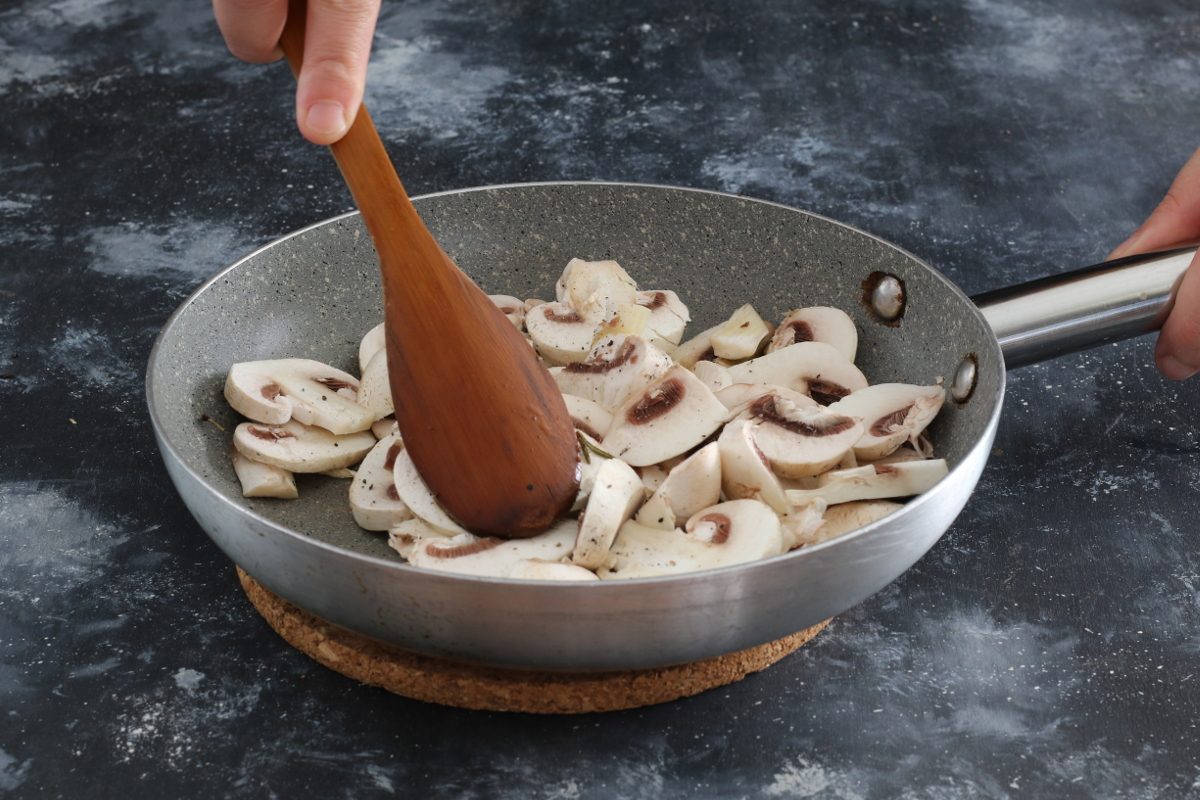;Resize,width=712;)
Sauté them in a pan with a drizzle of extra virgin olive oil and a clove of garlic. Add salt, pepper and cook for a few minutes 12.
Sauté them in a pan with a drizzle of extra virgin olive oil and a clove of garlic. Add salt, pepper and cook for a few minutes 12.
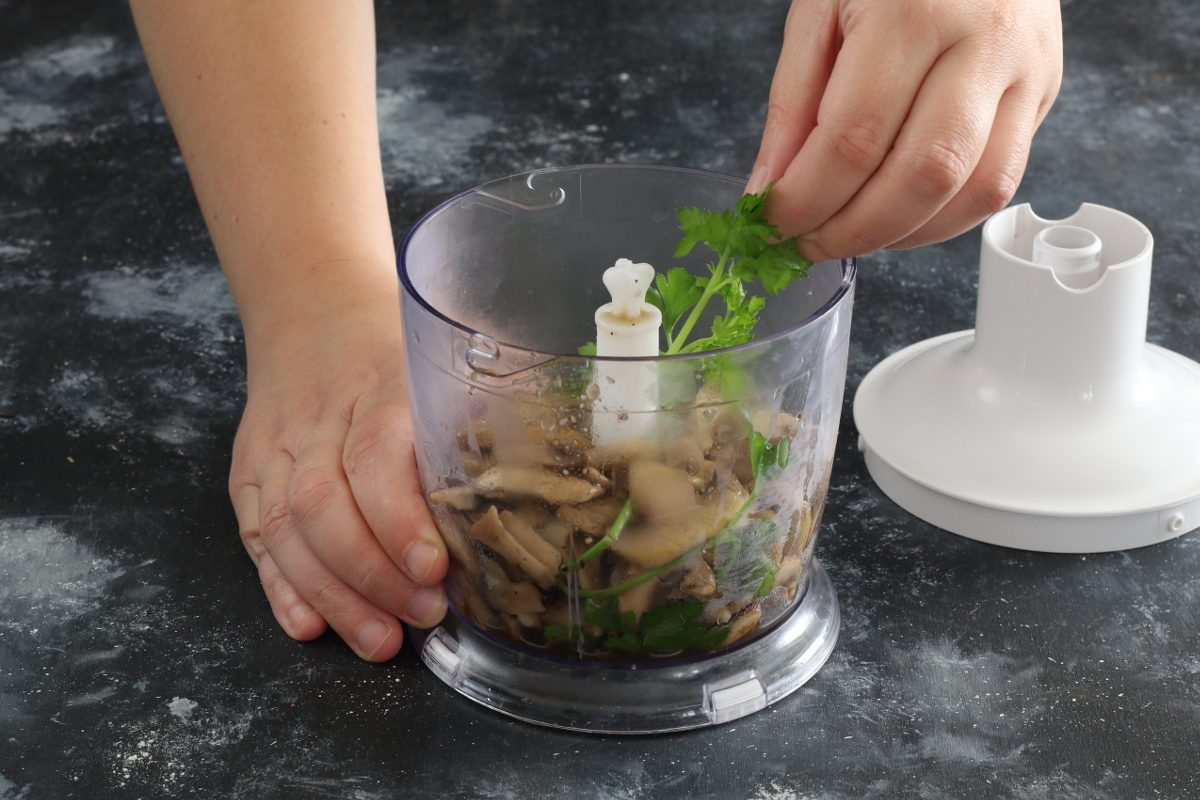;Resize,width=712;)
When the cooking juices are dry enough, transfer the mushrooms to a stand mixer and blend them with a sprig of parsley 13, seasoning with salt and pepper.
When the cooking juices are dry enough, transfer the mushrooms to a stand mixer and blend them with a sprig of parsley 13, seasoning with salt and pepper.
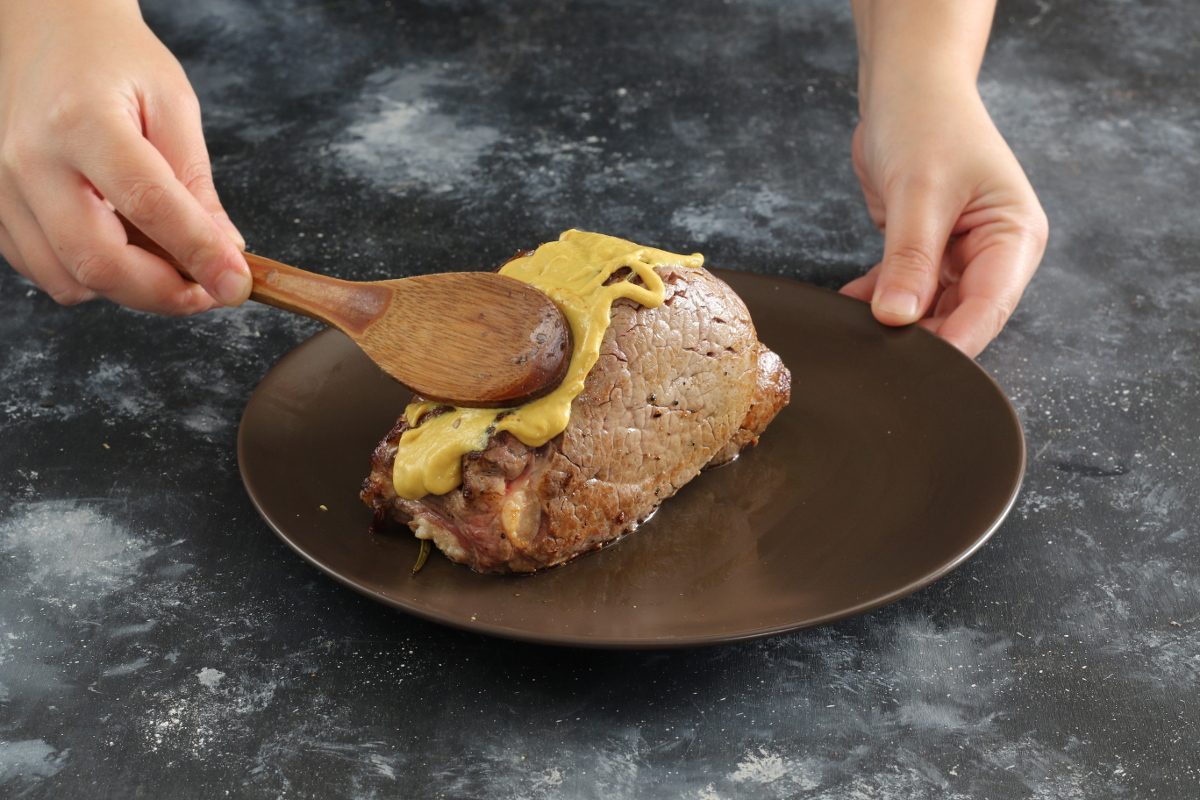;Resize,width=712;)
Take the meat again, eliminate its liquid released during the rest and cover it with a veil of mustard 14.
Take the meat again, eliminate its liquid released during the rest and cover it with a veil of mustard 14.
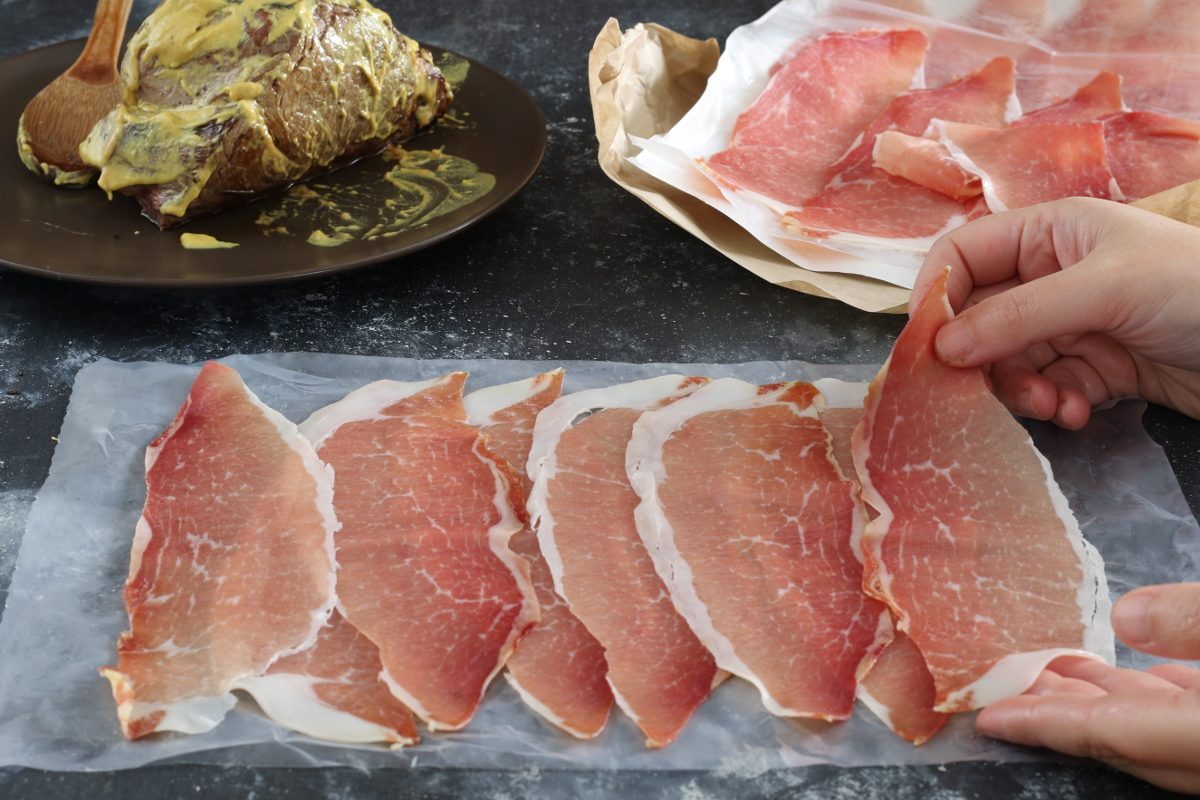;Resize,width=712;)
Spread the slices of ham side by side in a slightly overlapping way 15.
Spread the slices of ham side by side in a slightly overlapping way 15.
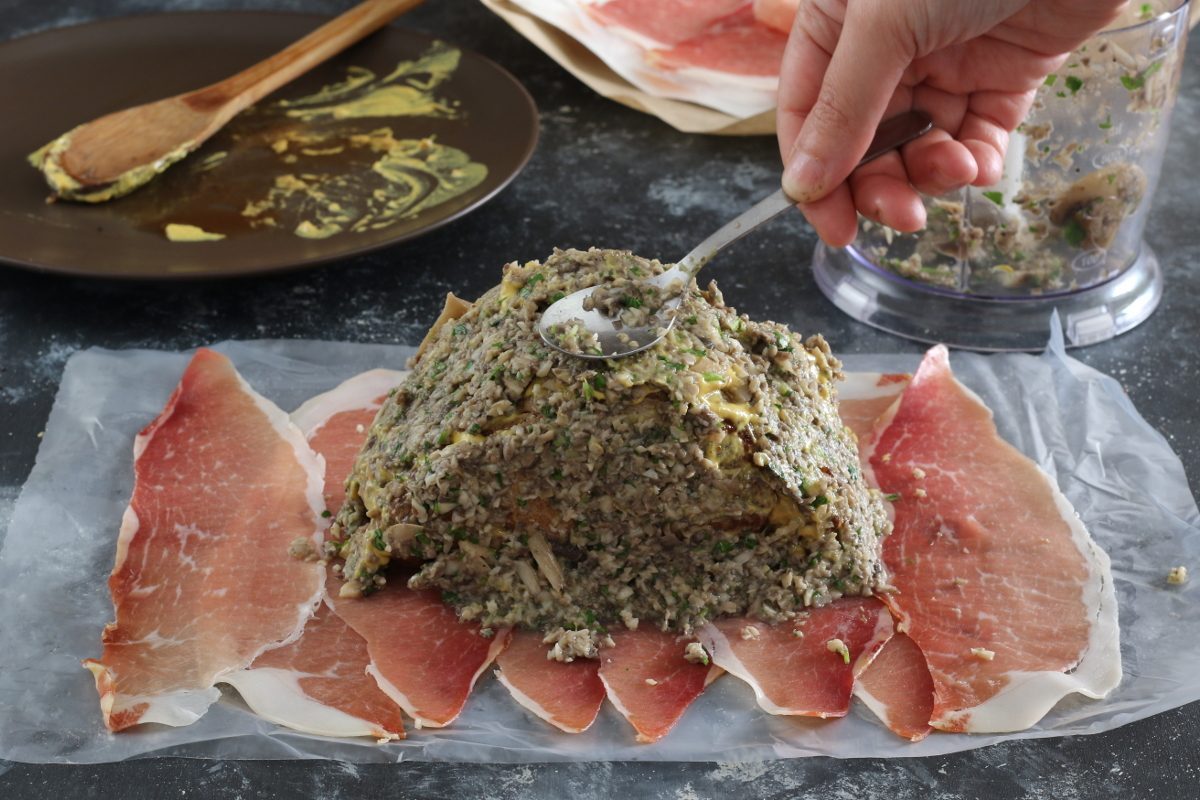;Resize,width=712;)
Place the filet in the center of the ham and cover it entirely with the chopped mushrooms 16.
Place the filet in the center of the ham and cover it entirely with the chopped mushrooms 16.
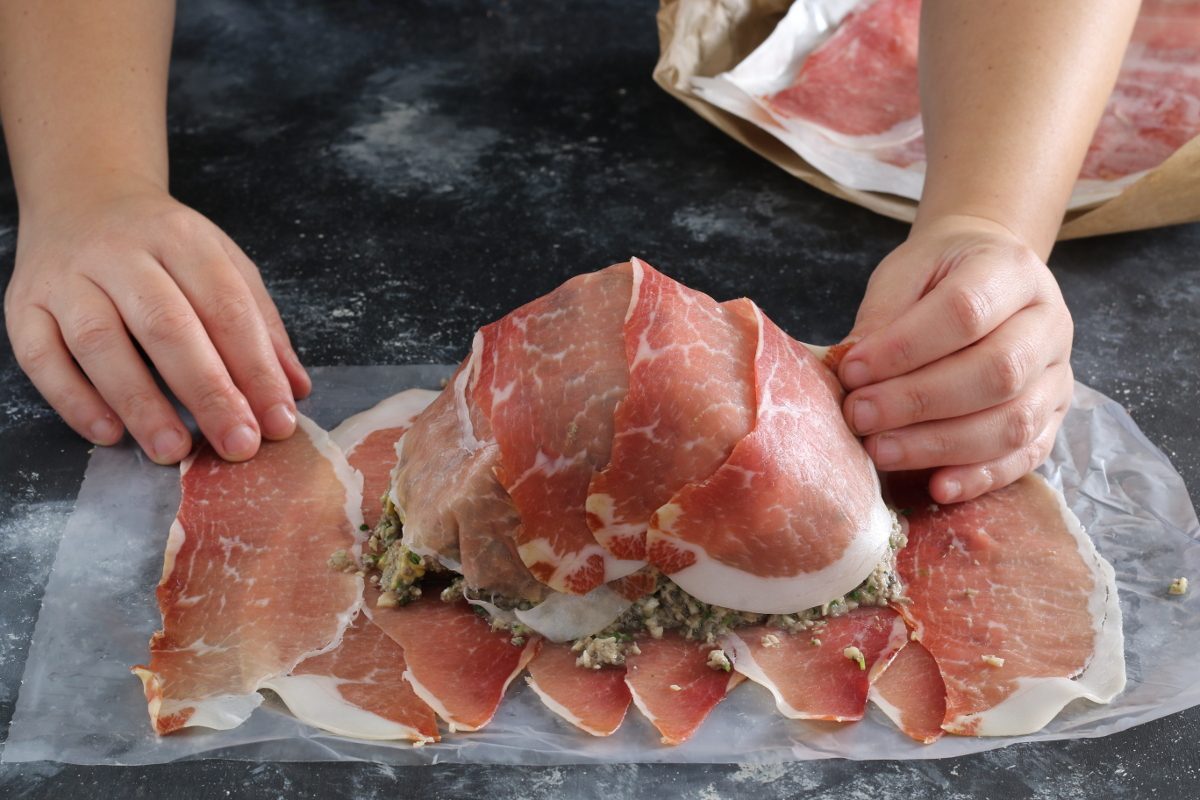;Resize,width=712;)
Wrap the meat completely with the ham 17 and set aside.
Wrap the meat completely with the ham 17 and set aside.
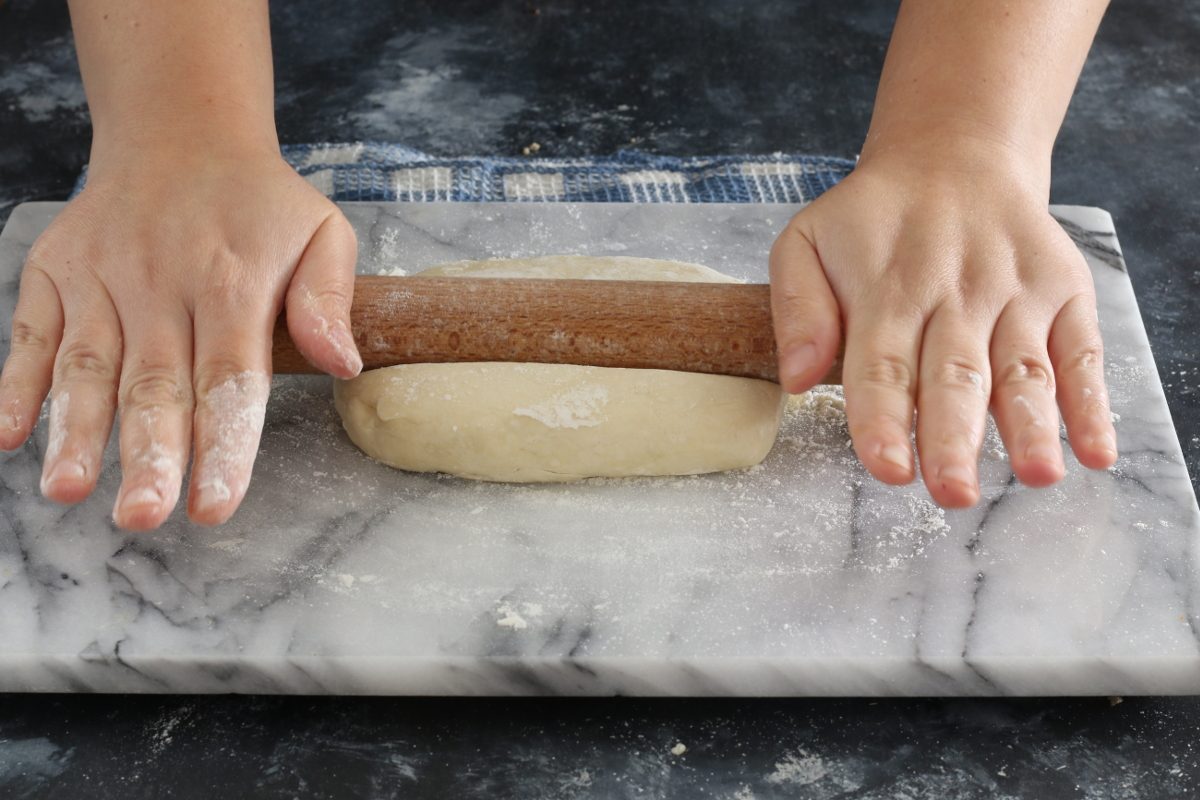;Resize,width=712;)
Take back the shortcrust pastry and roll it out with a rolling pin 18, until you get a sheet a few millimeters thick.
Take back the shortcrust pastry and roll it out with a rolling pin 18, until you get a sheet a few millimeters thick.
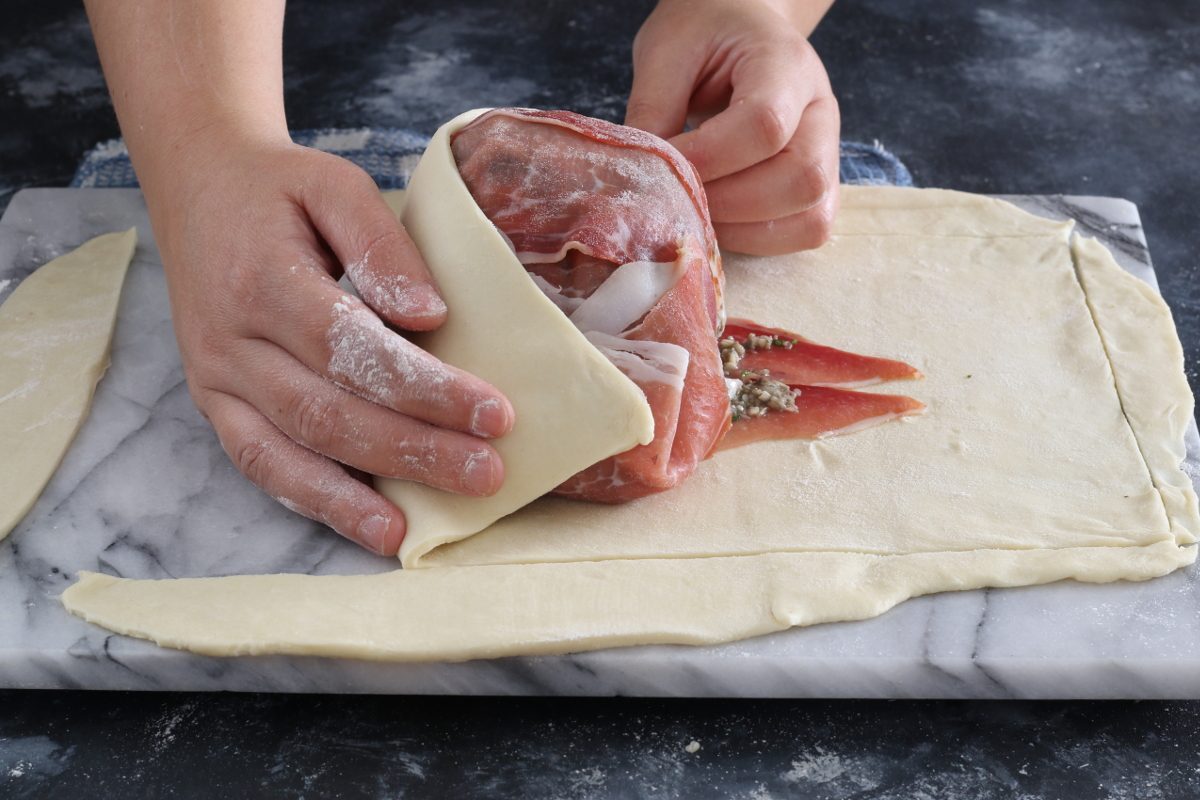;Resize,width=712;)
Cut a regular rectangle into the pastry and use it to completely cover the meat 19.
Cut a regular rectangle into the pastry and use it to completely cover the meat 19.
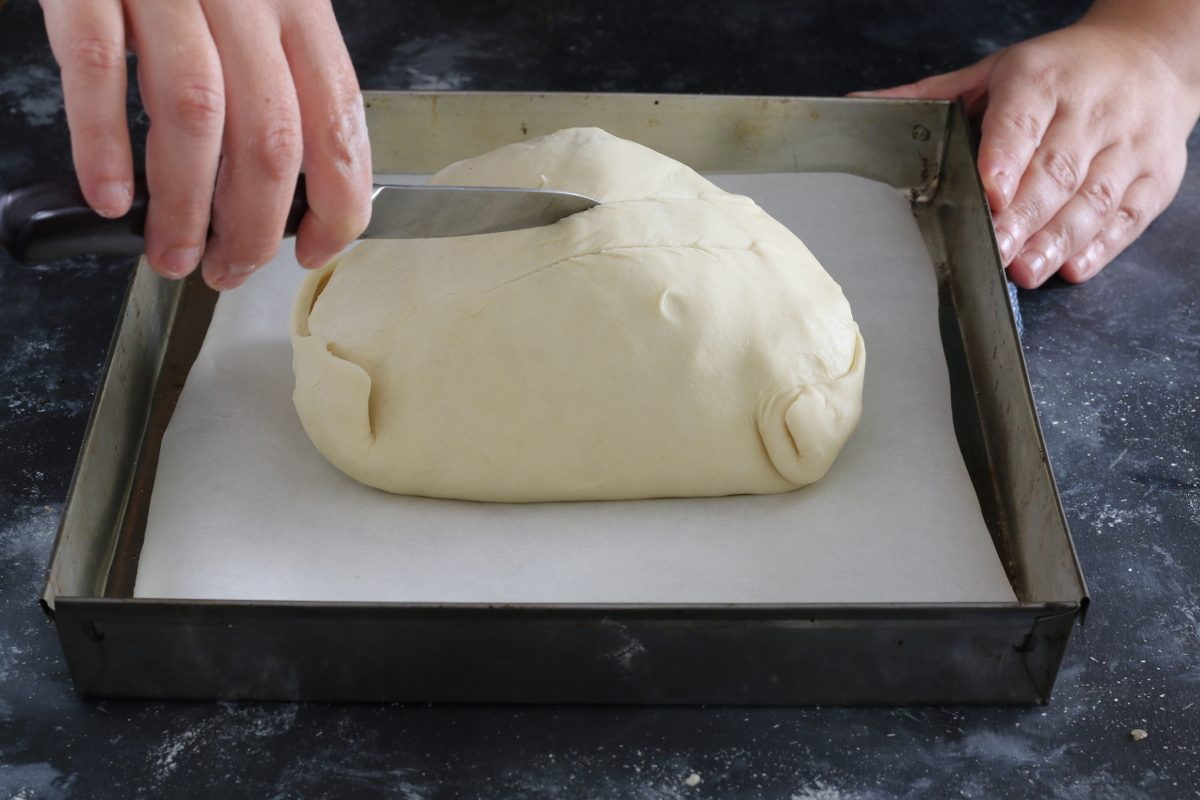;Resize,width=712;)
With a sharp smooth-bladed knife, carve the pastry forming lines and then rhombuses 20.
With a sharp smooth-bladed knife, carve the pastry forming lines and then rhombuses 20.
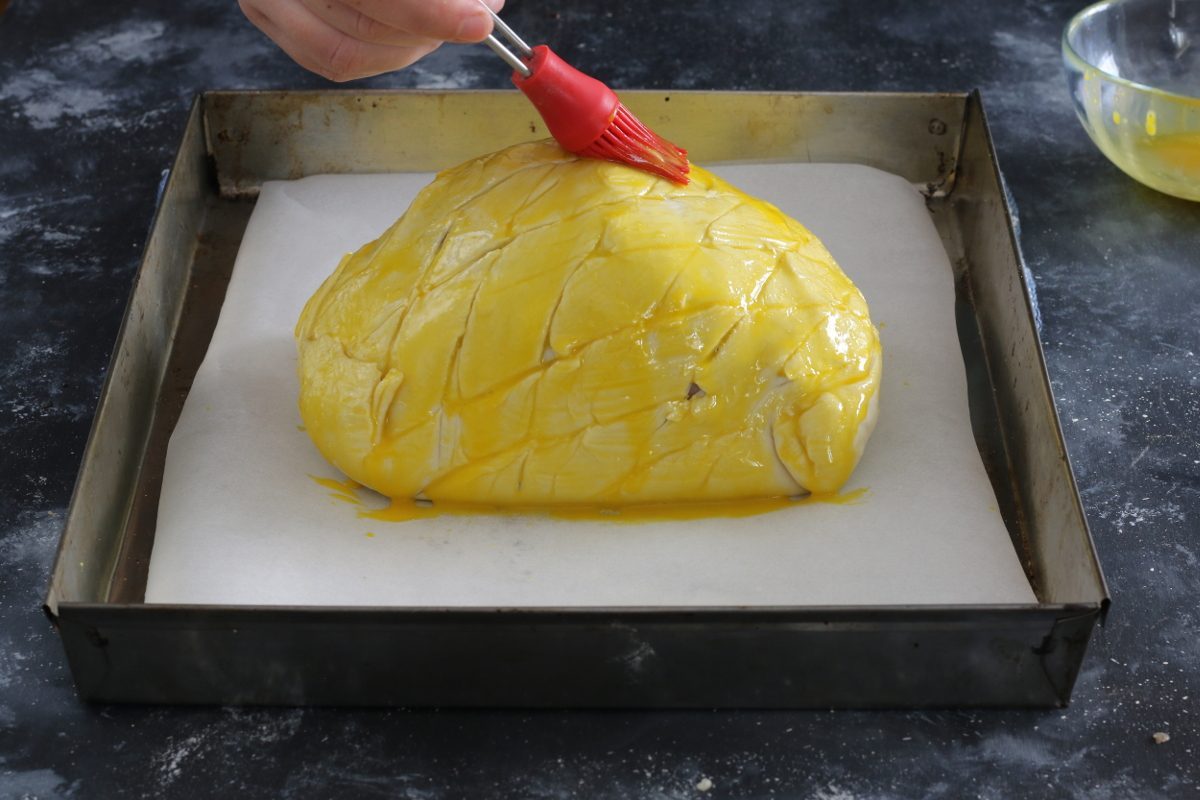;Resize,width=712;)
Brush the surface with the egg yolk evenly 21.
Brush the surface with the egg yolk evenly 21.
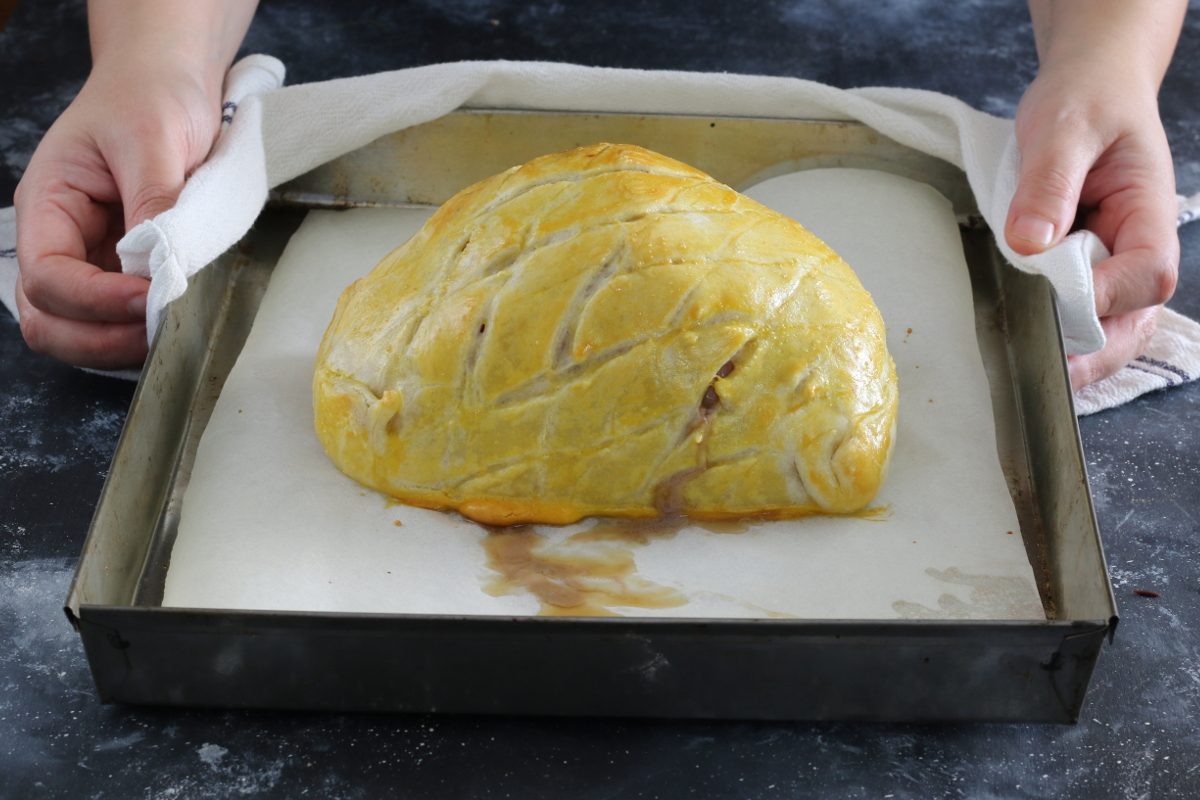;Resize,width=712;)
Cook the crusted filet in a preheated static oven at 350° F for about 30 minutes. Remove from the oven and let it rest for a couple of minutes, so the meat will retain its juices better when you slice it 22.
Cook the crusted filet in a preheated static oven at 350° F for about 30 minutes. Remove from the oven and let it rest for a couple of minutes, so the meat will retain its juices better when you slice it 22.
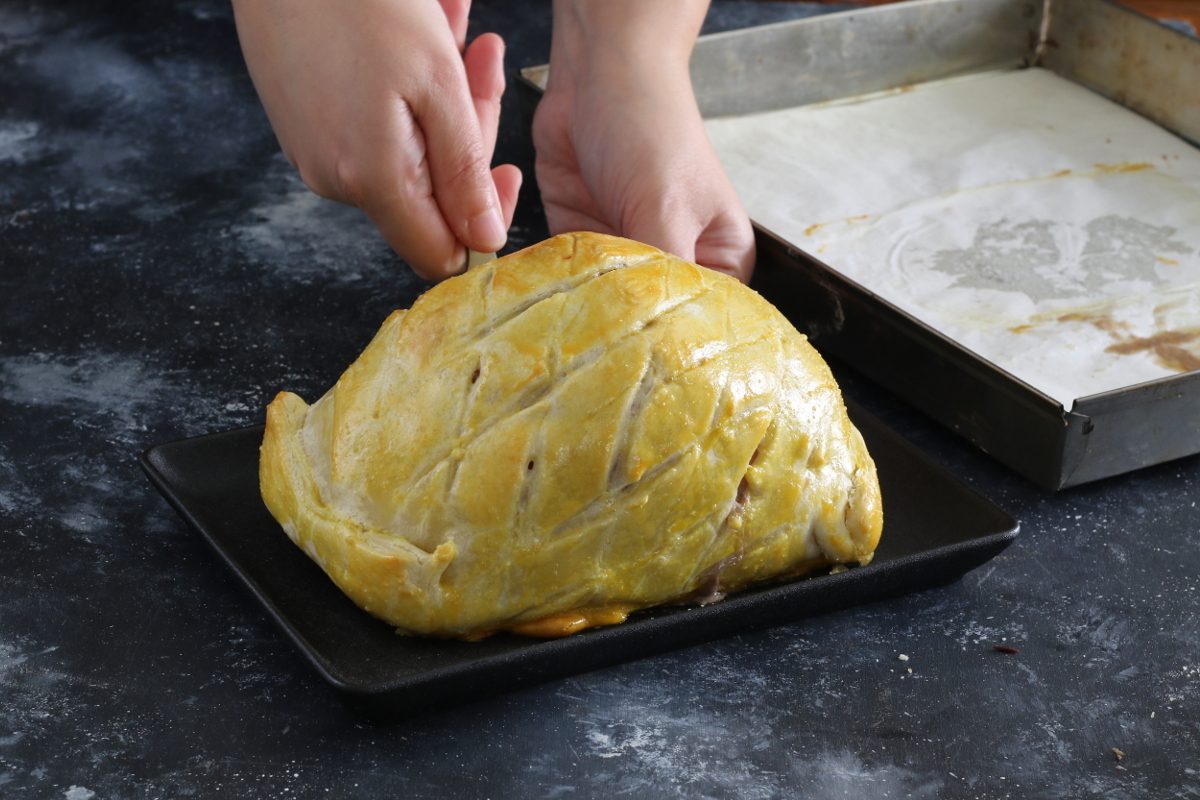;Resize,width=712;)
With a spatula, gently lift the crusted filet and transfer it to a serving dish 23.
With a spatula, gently lift the crusted filet and transfer it to a serving dish 23.
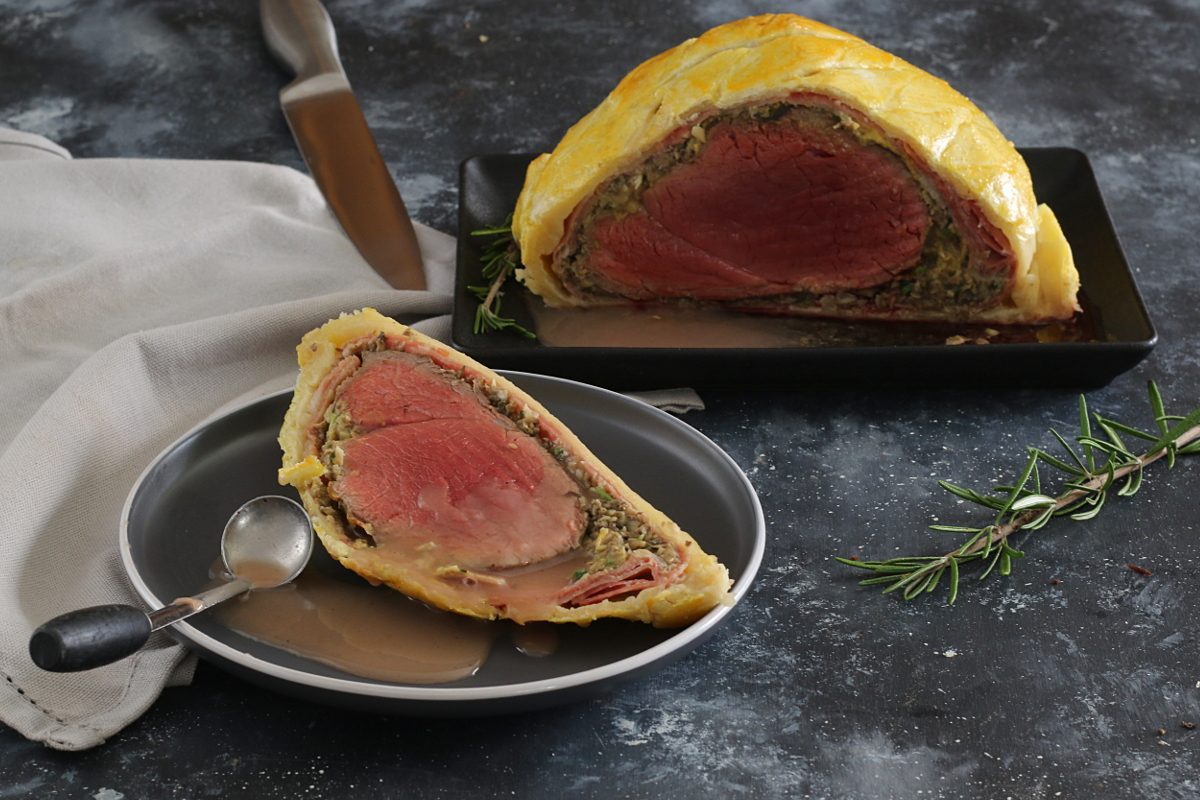;Resize,width=712;)
Serve the sliced hot filet accompanying it with the red wine sauce 24.
Serve the sliced hot filet accompanying it with the red wine sauce 24.
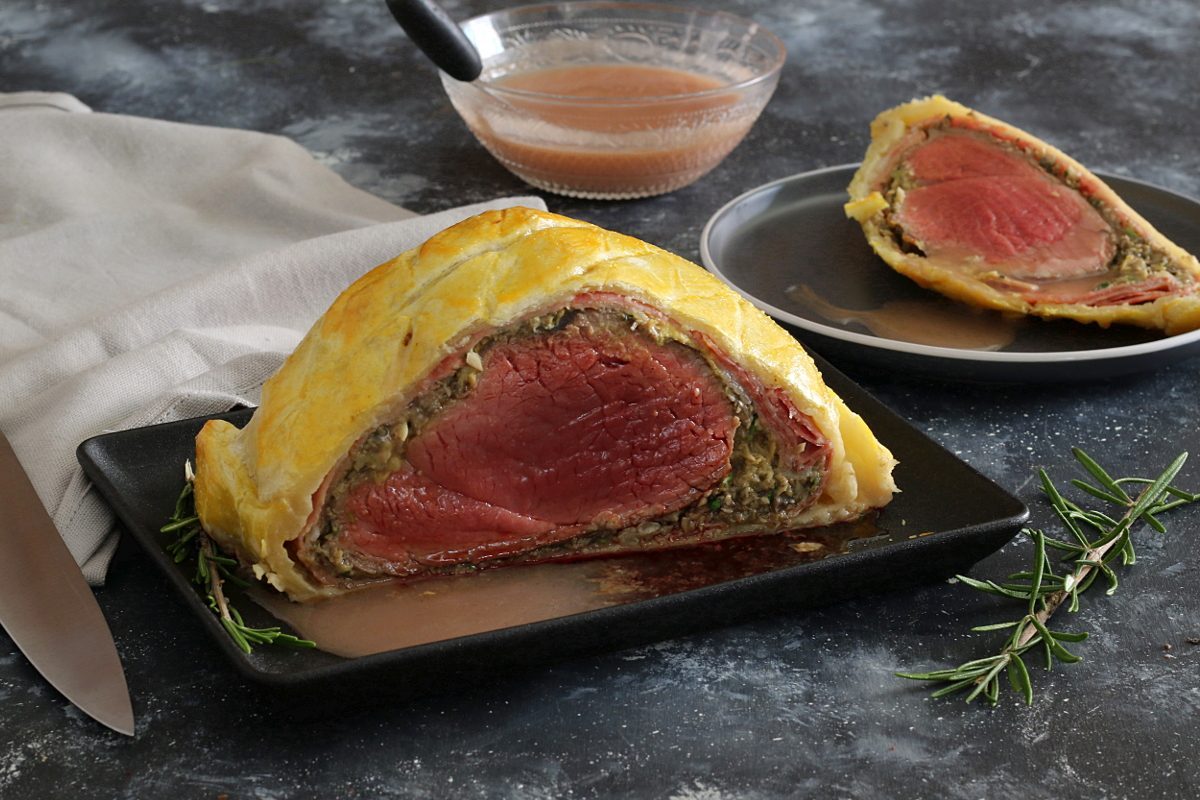;Resize,width=712;)
;Resize,width=767;)
